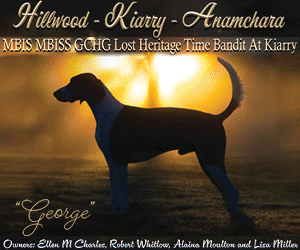The Kennel Club: Registration of Dogs of Merle Coloring
 The Kennel Club has announced that it will no longer accept registration applications for merle-coloured dogs in breeds where there is no documented evidence of the colour having been well established over a sustained period.
The Kennel Club has announced that it will no longer accept registration applications for merle-coloured dogs in breeds where there is no documented evidence of the colour having been well established over a sustained period.
This decision has been taken by the Board following requests from a number of breeds, most recently the Poodle Breed Council, that the Kennel Club disallow applications to register merle dogs, including those imported from overseas.
As merle is not a coat colour recognised as historically occurring in Poodles as well as most other breeds, and there is a precedent of refusing registration applications in at least ten other breeds, the Kennel Club Board has agreed that it will not accept the registration of any merle dogs with immediate effect, except in those breeds where the colour is well established.
The breeds in which registration applications for merle animals will continue to be accepted are the Australian Shepherd, Beauceron, Bergamasco, Border Collie, Cardigan Welsh Corgi, Dachshund (colour known as dapple), Great Dane, Long Haired Pyrenean Sheepdog, Rough Collie, Shetland Sheepdog and Smooth Collie.
Merle patterning – patches of lighter colour appearing in the coat – is the result of the M gene in the dog. There are two variants of this gene: M (merle) and m (non-merle), with merle (M) being dominant to non-merle (m). In some breeds, the effect of the merle allele (M) is termed ‘dapple’. Unfortunately, the effects of the merle allele (M) are not confined to coat patterning and it is known that there can be an increased risk of impaired hearing and sight associated with it, particularly in dogs that are homozygous for M (dogs that carry two copies of the M allele).
Frank Kane, Chairman of the KC Breed Standards and Stud Book Committee, said: “There are a number of breeds where merle is a long-standing and commonly-occurring colour, such as the Cardigan Corgi and Shetland Sheepdog. In these breeds there is a great tradition of the successful breeding of merle animals using well-established and careful methods. However, in most other breeds there are no such traditions and so the Kennel Club has now agreed to reject the registration of any merle dogs, a measure already taken with breeds such as the Bull Terrier and French Bulldog.”
Dr Tom Lewis, Genetics & Research Manager at the Kennel Club, added: “The causal merle variant is dominant, so shows itself whenever it is present – even as a single copy. Therefore, in most breeds, we know it cannot have been present ‘under the radar’, as can be the case for some recessive variants. As a result, merle cannot suddenly ‘emerge’ in a breed after many years. This is why the Kennel Club is able to take this position in relation to merle as the situation is relatively straightforward, unlike in the vast majority of other colours.”
The Kennel Club continues to work alongside breed clubs and councils in a collaborative effort to encourage the general improvement of dogs. For more information please visit www.thekennelclub.org.uk.
Short URL: http://caninechronicle.com/?p=177000
Comments are closed











